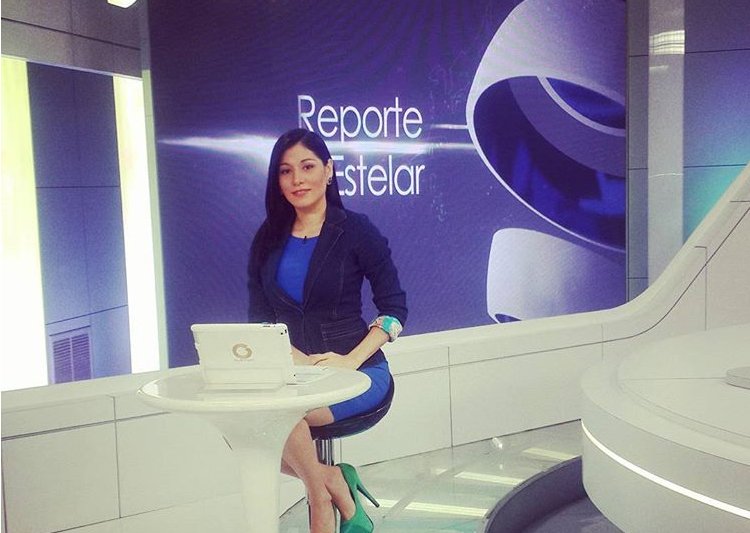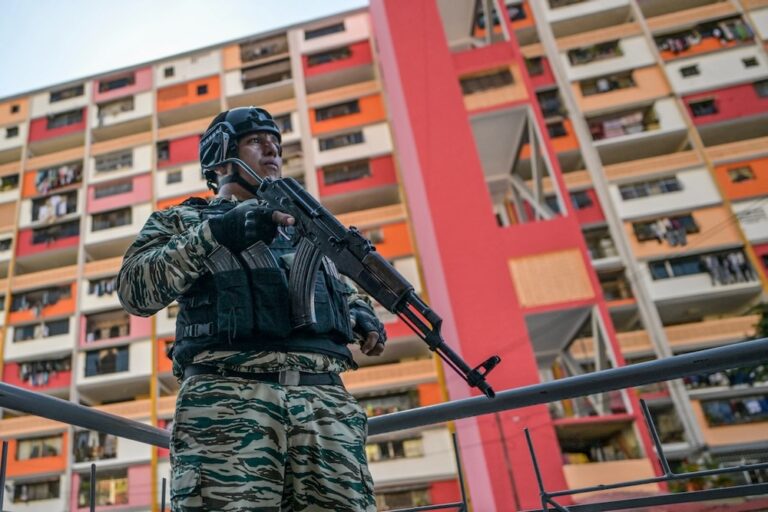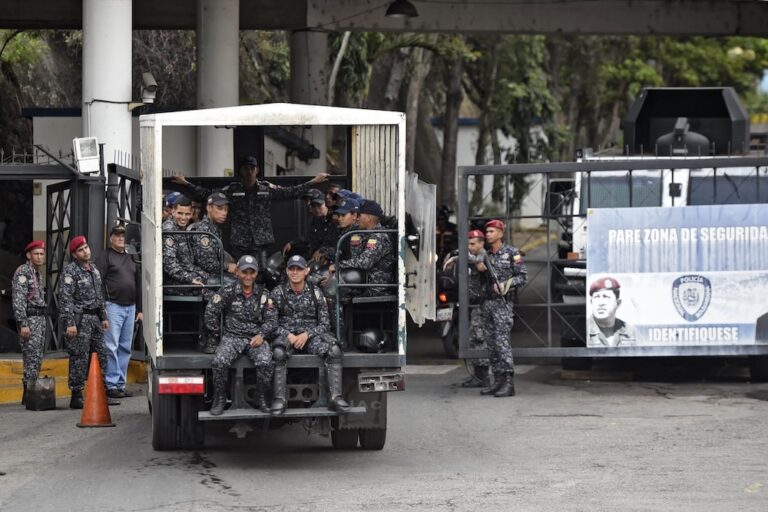In the latest serious violation of the rights of journalist Melissa Turibbi, at a time of great tension for the opposition media, intelligence officers searched and ransacked her home on 24 October.
This statement was originally published on rsf.org on 27 October 2016.
Reporters Without Borders (RSF) condemns the Venezuelan government’s harassment of Globovisión’s well-known TV host Melissa Turibbi. In the latest serious violation of her rights, at a time of great tension for the opposition media, intelligence officers searched and ransacked her home on 24 October.
The raid was carried out by five members of the Bolivarian Intelligence Service (SEBIN), the government’s espionage and counter-espionage agency, who said they were looking for her when they arrived at her home and then entered without a warrant or any other authorization.
Melissa Turibbi was away on a work trip at the time. The only persons there were her son, who suffers from autism, and his nanny. After shutting the boy in a room, the agents proceeded to conduct a thorough search and ransack the apartment. They seemed to be looking for her computer and personal documents and left after finding nothing.
This is not the first time Turibbi has been subjected to this kind of pressure. A specialist in politics and military affairs, she is well known in Venezuela for being outspoken and for criticizing President Nicolás Maduro’s government, especially on “Reportes Estelar,” the programme she hosts for Globovisión.
After temporarily losing consciousness in a car accident on 11 February, Turibbi was found by members of the Bolivarian National Police (PNB), who recognized her and asked her to accompany them. During the ensuing interrogation, she was insulted and, while her hands were bound, she was roughed up and accused of “resisting the authorities.”
She was then taken from one police station to another and subjected to further physical violence without being allowed to contact her family or lawyer. She was finally released the next day after several hours in a hospital with respiratory problems. She filed a complaint with the public prosecutor’s office but no action was taken.
“We condemn this grave violation of Melissa Turibbi’s rights and urge the government to stop harassing and censoring Venezuelan journalists, regardless of their political views or the editorial policies of the media they work for,” said Emmanuel Colombié, the head of RSF’s Latin America desk.
“The medieval methods used by Venezuela’s authorities to censor the government’s critics are unacceptable and very worrying for the future of the media in country currently embroiled in a major crisis.”
When reached by RSF, Turibbi said she would not file a complaint about the burglary attempt because no action was taken in response to her previous complaint.
Turibbi used to co-host a programme with Vladimir Villega called “Melissa y Vladimir” but was removed on 24 May after interviewing the then parliamentarian Ricardo Sánchez, who was very critical of the pro-government militias. She attributed her removal to direct government pressure.
Tense street protests
Venezuela is currently experiencing a major economic and social crisis, with massive street demonstrations being held in Caracas and the rest of the country in recent weeks and the opposition now calling for a general strike. The climate is extremely tense and many attacks on media personnel have been reported.
During an extraordinary session of the national assembly on 23 October, a group of armed government-supporters stormed into the chamber and disrupted the proceedings. Three journalists were threatened at gunpoint, one was physically attacked and equipment was stolen from many others.
Espacio Público, a local NGO, reported that three Peruvian journalists working for the Mexican TV channel Televisa – Ricardo Burgos, Leonidas Chávez and Armando Muñoz – and Rodrigo Abd, an Argentine photographer with the Associated Press, were denied entry to Venezuela yesterday, shortly after landing in Caracas with the aim of covering a major anti-government demonstration.
Immigration officials at Caracas international airport said they did not have valid work visas and them put on flights back to their home countries. RSF condemned the use of such censorship methods on the eve of big protests on 1 September.
According to Espacio Público, no fewer than ten journalists were attacked during yesterday’s demonstrations.
Venezuela is ranked 139th out of 180 countries in RSF’s 2016 World Press Freedom Index.



